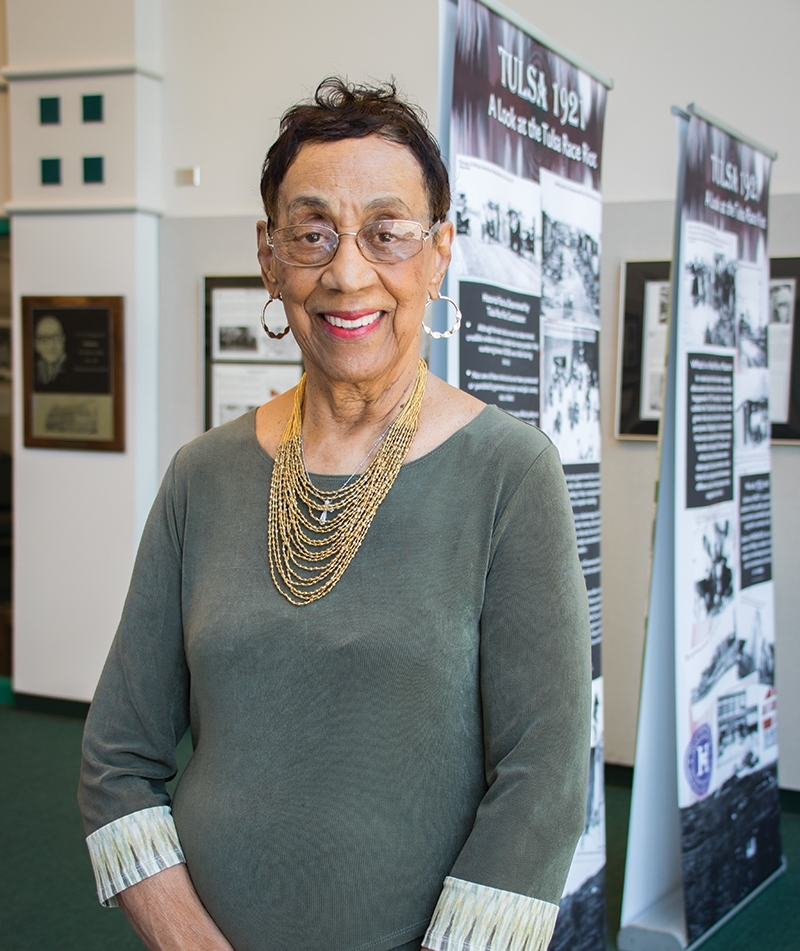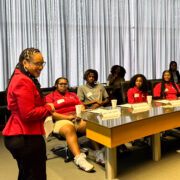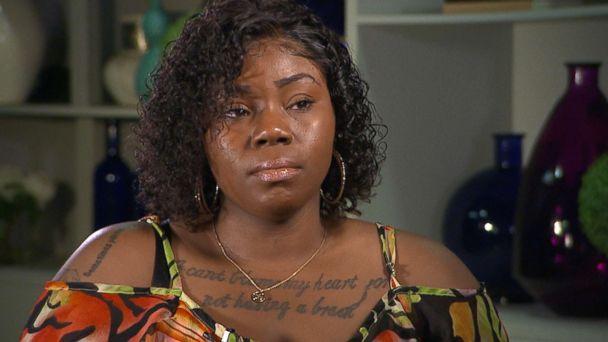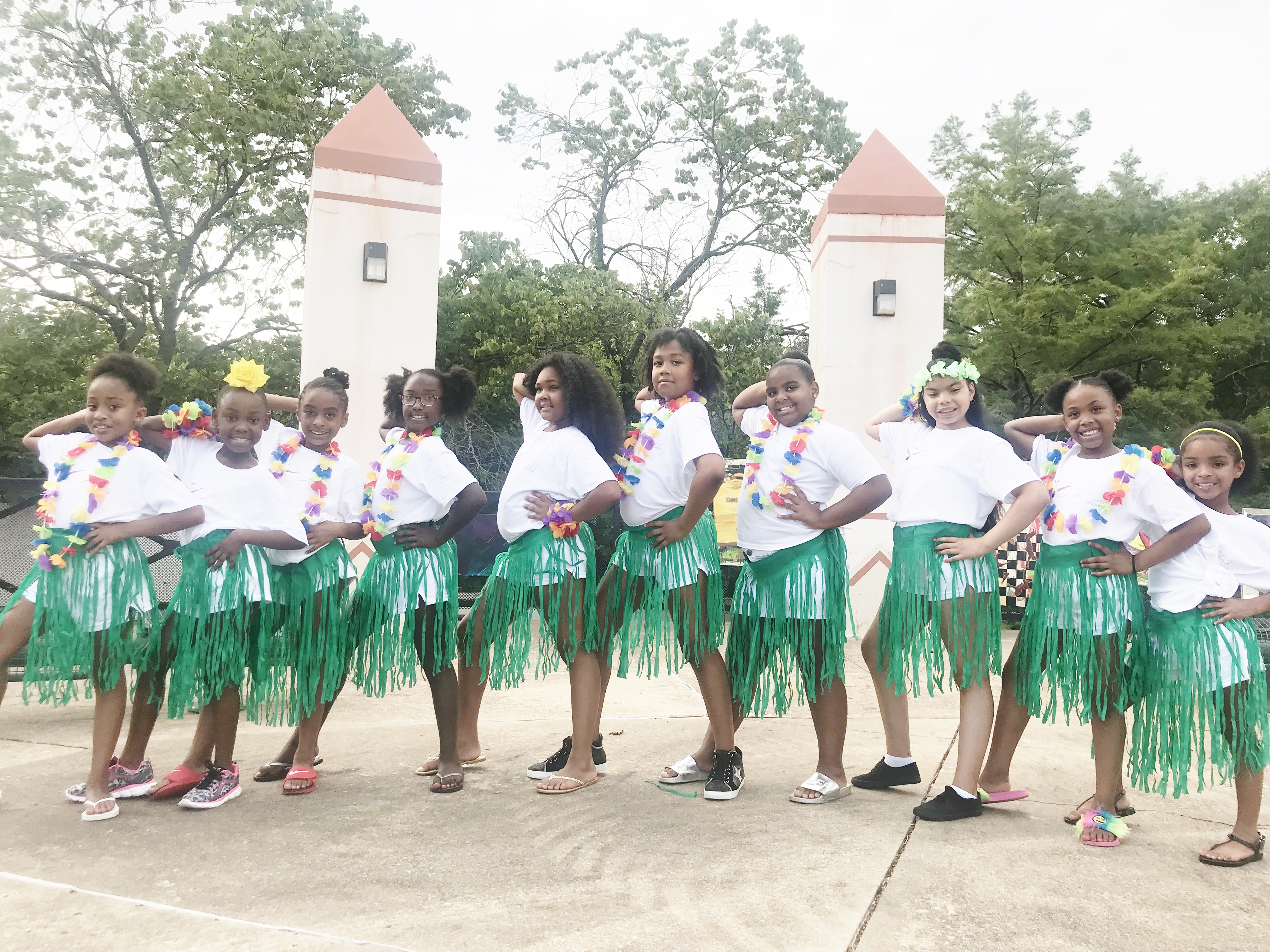
Former Oklahoma Sen. Maxine Horner is living her best life at 86 years old.
Witty and energetic with a penchant for comedy, she is a mother, grandmother and great-grandmother confident in who she is and what she has accomplished throughout her career.
Her roots run deep in Tulsa, where she began her education as a student in a segregated school. In adulthood, Horner was as an advocate for social justice and civil rights, progressing from a job at the north Tulsa YWCA to a position at Booker T. Washington High School. She next worked at Sunray DX Oil Co., now Sunoco, as the first African American to be hired there in a professional position.
From there, Horner was involved with the Tulsa Urban League and was employed in the office of Congressman James R. Jones — a job that uncovered her political ambitions and convinced her to run for the state senate.
Serving as one of the first African-American women in the Oklahoma Legislature from 1987-2004, Horner was passionate about education and authored the landmark SB 156 — the Oklahoma Higher Learning Assets Bill, known today as Oklahoma’s Promise. The legislation provides college scholarship money for students with at least a 2.5 grade-point average.
Horner is proud of her work then and how the program has matured today, supporting thousands of students who wouldn’t otherwise have had the opportunity to attend college.
Other highlights of her public service career include passing legislation to create the Oklahoma Jazz Hall of Fame. A lover of gospel and jazz, Horner is one of Tulsa’s many proponents of music, art and culture. From the historic Greenwood District to Tulsa’s transformed downtown, Horner is pleased to see these areas prosper.
Where did you go to school? Why?
After high school at Booker T., I received a scholarship to Wiley College, a four-year school in Marshall, Texas. I stopped my second year when I became a candidate for an associate’s degree and returned to Tulsa. My parents were getting a divorce, and I had younger siblings at home. I always kept in mind that I would one day pursue that degree, and I did in my 50s — I graduated from Langston University in 1985 with a degree in personnel management.
What was one of your most defining moments in life?
I would have to say being able to make sure that every kid who wanted to go to school had a chance (through Oklahoma’s Promise). In the legislation, I specified that everybody might not necessarily be college bound, so there was an option for students to go to vo-tech. Vo-tech can be a stepping stone to higher education.
What age do you feel right now and why?
I’m 86, but I must say that from 50 on — those are the best times of your life. There are so many things that you learn as you gain more confidence to the point it just feels so good to be able to say “no,” and you mean it. Based upon my age and what I’ve been able to see, which I never thought I would see and witness here in the United States, this is probably the best time of my life.
How would your friends describe you?
Some of the things that stood out from some letters my grandsons gave me one year at Christmas that included comments from friends were that I’m loyal and trustworthy. If there’s ever a moment that someone needed help, I would move forward to help them.
What would people be surprised to know about you?
I think that many people would not believe that I have a really fun sense of humor. I love to have fun and I love comedians, but I like them edgy — people like Seth Meyers, Stephen Colbert and John Oliver. I love Comedy Central, and I love laughter. (Other favorites include Moms Mabley, Bernie Mac and Eddie Murphy.)
What are some of your other hobbies?
I enjoy reading, and I love movies. I watch Netflix and like listening to TED Talks. I’m also currently involved with the Saint Simeon’s Trust.
I’m on the Tulsa Race Riot Commission. I know they’re doing some things for the celebration coming up in 2021. Plans are moving in a positive direction. I think it has great potential to bring about businesses and entertainment in that area.
If you could witness any event of the past, present or future, what would it be?
In the past I would have to say that moment in time in 2008 — I never thought I would live to see an African American (Barack Obama) become president of the United States. I was able to attend the inauguration. I also think back to Dr. (Martin Luther) King Jr. Then in the present, never did I think that I would see a royal wedding with a mixed-race princess (Meghan Markle).
What was a “worst time,” and how did you pull through it?
The worst time was when I lost my husband, Donald Montell Horner Sr., and when I lost my mom many years ago. When my husband died, I was in the middle of a campaign, but I had to keep moving. The people around me on the campaign and in the legislature were so supportive. I waited to have my pity parties on the weekends. There were just certain things he did, like coffee first thing in the morning, that I missed so much. It happened so fast. He had pancreatic cancer. It took a while to get to the point when my kids and I could talk about him. Now we can laugh and celebrate the fun times, but it was no fun for a long time.
What concerns you today?
I’m really nervous about the divisiveness in the state and on the national level. I feel like I’m in a nightmare with this administration. Why are kids killing kids? Why has the door opened where so much hate is going on all over the country? Fortunately, I served with a group of people who respected different opinions. They were people who believed in good government on both sides of the aisle, and I don’t see that in today’s political climate. I’m really hoping that with the mid-term elections changes will come.
How do you measure success?
By keeping your eye on the prize and being relentless and focused. I guess if I could use a statement of Barack (Obama)’s I would say, “Yes, I can.”
What is a favorite Tulsa memory?
When we were able to complete the expansion of the Greenwood Cultural Center. We held a gala for the opening that showed the stages it had gone through. We were able to get the funding to do the things we wanted to do with the help of people like Mayor Rodger Randle and Mayor Susan Savage. We had great support from the tourism department and the arts council in Oklahoma City, and we unveiled a portrait of one of our chief mentors, Opal Dargan. That was a wonderful memory to see that all come into place.
Describe a perfect weekend in Tulsa or elsewhere.
In New York City three years ago, I was with my daughter, my granddaughter and my brother, Chuck Cissel, who had performed on Broadway. That was a fantastic weekend. I had the opportunity to go see “The Color Purple,” and then after the performance I had a picture taken with Jennifer Hudson, who is one of my favorite singers. She was so sweet.
The other perfect weekend would be when I had the chance to go to Paris. That was on my bucket list. At a little place on a street corner, I sat at a table with some colleagues to have a glass of wine and hear jazz. It was great.
What place in Tulsa do you miss the most?
I grew up at the time when businesses were booming, particularly on Greenwood, so what I miss is what’s lost on Greenwood. I know there are some things that are developing around the area, but I would like to see more minorities get involved in Greenwood.
What have been the most significant changes you’ve experienced in Tulsa?
As a young Tulsan, I was not able to attend college in Oklahoma. In fact, when my husband wanted to get a degree in accounting, we had to leave Oklahoma. We couldn’t go to TU, OSU or OU because of segregation, so I would have to say we’ve seen significant changes in educational opportunities. Blending schools and breaking down barriers in public schools has been a definite change.
There have also been new opportunities to take advantage of shopping and social activities in downtown Tulsa. I feel like sometimes I’m in a different world when I go downtown, and it’s great to see more and more going on there. I remember downtown Tulsa even in the days of segregation — businesses and hotels were thriving. It’s exciting to see the area come alive again.









